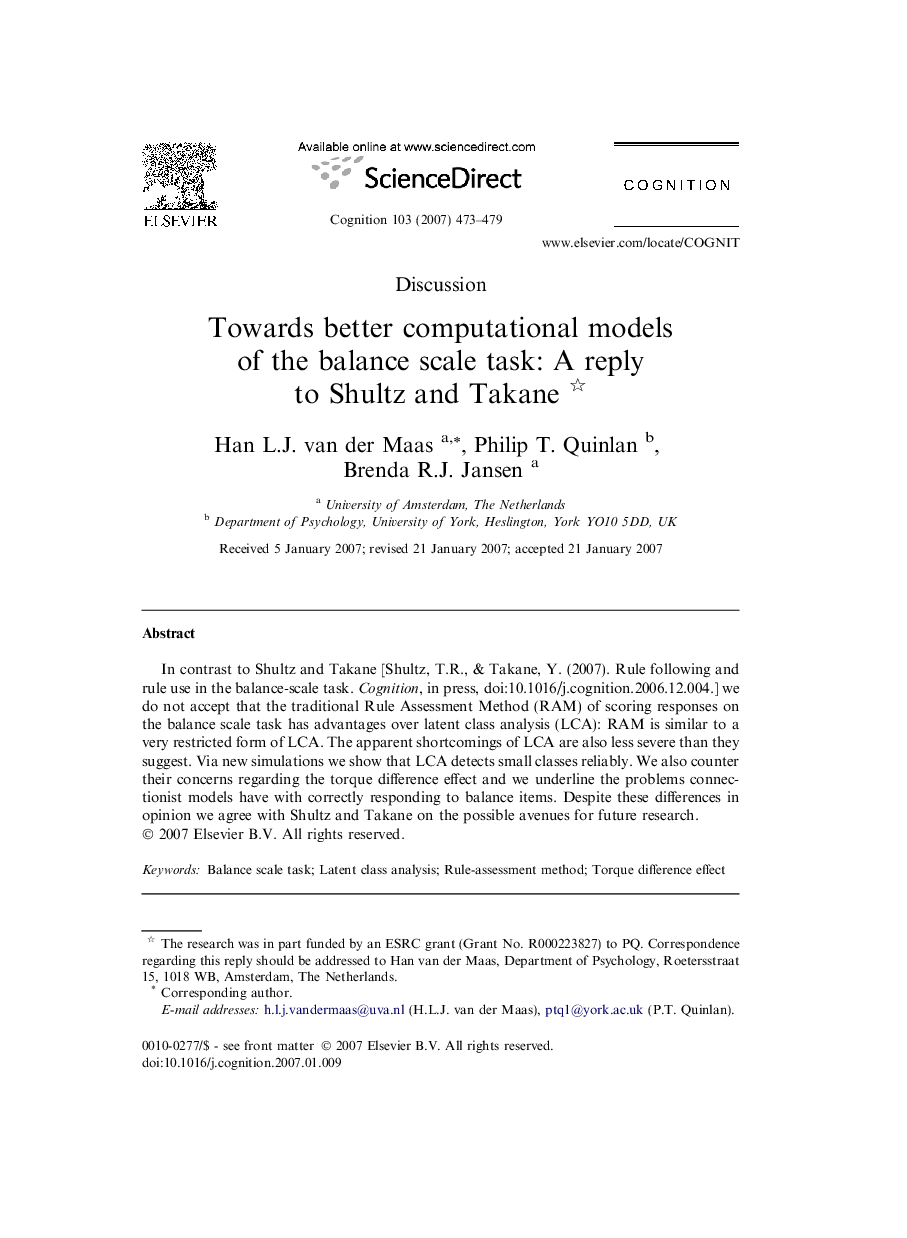| Article ID | Journal | Published Year | Pages | File Type |
|---|---|---|---|---|
| 927219 | Cognition | 2007 | 7 Pages |
In contrast to Shultz and Takane [Shultz, T.R., & Takane, Y. (2007). Rule following and rule use in the balance-scale task. Cognition, in press, doi:10.1016/j.cognition.2006.12.004.] we do not accept that the traditional Rule Assessment Method (RAM) of scoring responses on the balance scale task has advantages over latent class analysis (LCA): RAM is similar to a very restricted form of LCA. The apparent shortcomings of LCA are also less severe than they suggest. Via new simulations we show that LCA detects small classes reliably. We also counter their concerns regarding the torque difference effect and we underline the problems connectionist models have with correctly responding to balance items. Despite these differences in opinion we agree with Shultz and Takane on the possible avenues for future research.
